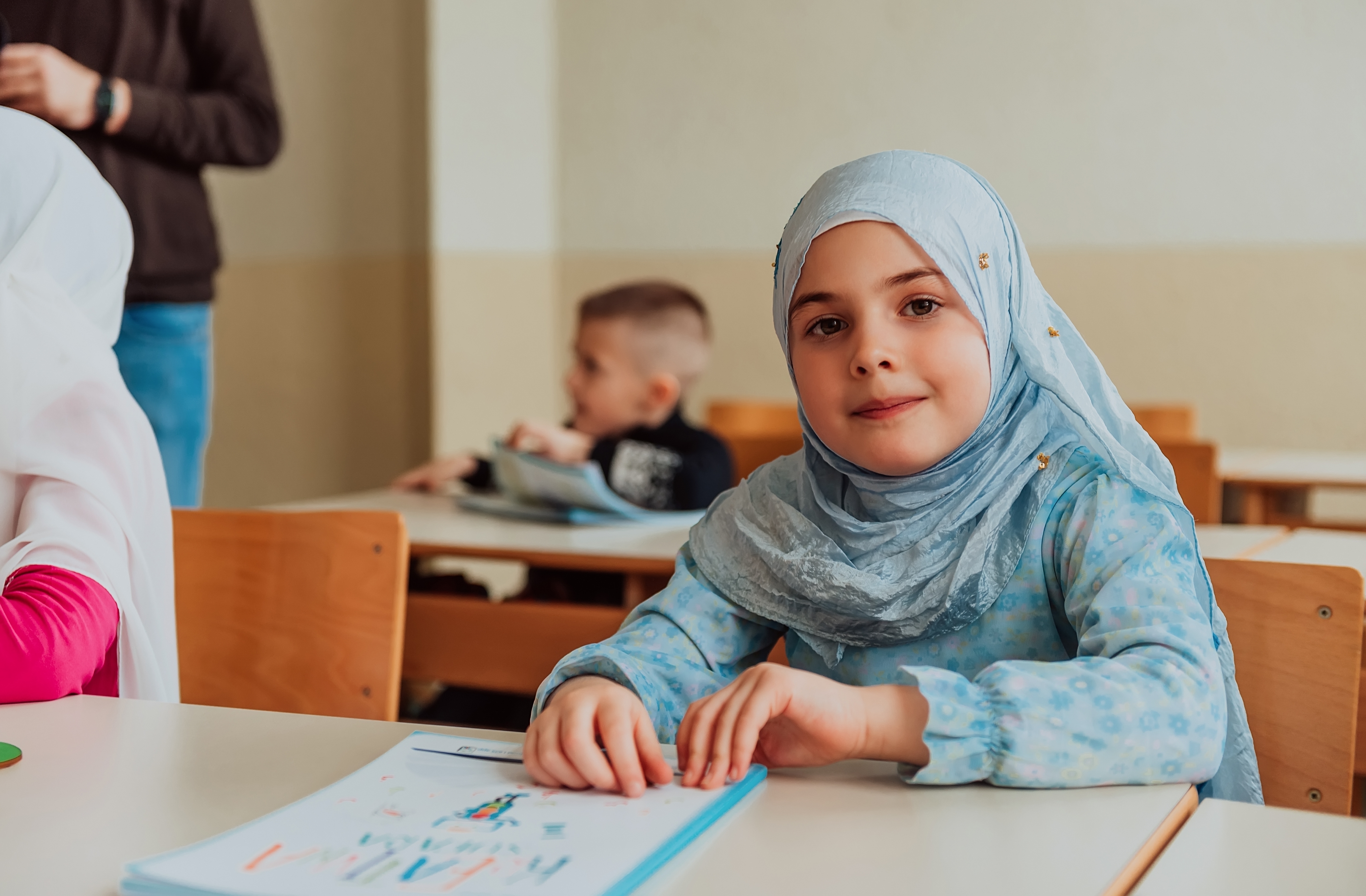العودة

How can learners learn in a language they don’t understand?
اليونسكو
2023 - 02 - 21
Multilingual Education based on the mother tongue: a pathway to learning, identity, peace, and sustainable development

MalikNalik/Shutterstock.com
Some countries around the world offer multilingual learning opportunities, whereas others, where multilingualism is perceived as a challenge, do not, and limit education to monolingual contexts. This not only constitutes a great loss to our shared linguistic heritage, but also a barrier to the inclusion and academic, socio-emotional and foundational development of many learners.
Where learning and education are only made available in the country’s official/dominant languages, it is difficult for minorities and indigenous peoples to benefit from available opportunities. Same goes for refugees and displaced people who are left out in host countries that do not offer educational opportunities in their tongue or in a language they speak or understand. As a result, many children and youth cannot access nor properly benefit from learning, which marginalizes them and puts their right to inclusive, equitable and quality education in jeopardy.
To be able to access education and integrate the societies they live in, these children and youth often have to learn the official language of instruction, which is used in most aspects of their life. As a result, due to lack of speakers, 40% of the world’s 6,700 languages is on the brink of extinction. Since languages are a vessel that transmits and preserves traditional and cultural knowledge, many cultures are fading as well.
In light of the above, this year, the 24th edition of the International Mother Language Day, observed on 21 February, was celebrated under the theme ‘multilingual education - a necessity to transform education’, with the aim of highlighting the importance of multilingualism in education and its potential to truly revolutionize and transform education worldwide from a lifelong learning perspective.
The 2023 International Mother Language Day discussions centered on 3 interconnected themes:
- Promoting multilingual education as a necessity to transform education starting from early childhood education.
- Fostering learning through multilingualism in rapidly-changing global contexts, as well as in emergency and crisis situations.
- Revitalizing languages on the brink of extinction.
UNESCO called countries to instill a policy of multilingual education to teach learners, starting from the earliest years of schooling, in their mother tongue, which can be combined with the official language of instruction.
“To help fight the current global learning crisis, while preserving the linguistic diversity which is an essential cultural element, UNESCO urges governments to embrace multilingual education based on the mother tongue from the earliest years of schooling. We know it works – there is empirical evidence to prove it helps children learn.”
Audrey Azoulay, Director-General of UNESCO
Multilingual education based on the mother tongue not only fosters inclusion, integration and identity, but also helps improve learning and social skills. In fact, according to UNESCO’s World Inequality Database on Education, children, if taught in their home language, are 30% more likely to read with understanding by the end of primary education.
Multilingual education also fosters dialogue and interaction among learners of different backgrounds and cultures, which exposes them to new views, traditions and perspectives, and helps them be more open and celebrate differences and diversity. This promotes peace, tolerance, and understanding, and paves the way for transformative education, global citizenship and sustainable development.
For more information: https://www.unesco.org/en/articles/international-mother-language-day-unesco-calls-countries-implement-mother-language-based-education
أحدث المنشورات
القائمة الكاملةاليونسكو
المستقبل على المحك: لماذا الاستثمار في التعليم أمر بالغ الأهمية؟
يسلط هذا التقرير، الذي أعدّته اللجنة التوجيهية الرفيعة المستوى المعنية بالهدف الرابع من أهداف التنمية المستدامة (SDG4) بالتعاون مع الشراكة العالمية من أجل التعليم (GPE) ونُشر في عام 2024، الضوء على الحاجة المُلِحّة لتعزيز الاستثمار في التعليم كوسيلة أساسية لمواجهة التحديات العالمية، بما في ذلك تغيّر المناخ، والتطورات التكنولوجية، والتحوّلات الديموغرافية.
اليونسكو
المدن العربية تتألق في جوائز مدن التعلم لليونسكو لعام 2024
تُحرز المدن العربية تقدمًا كبيرًا في مجال التنمية المستدامة والتعلم مدى الحياة، مع تركيز متزايد على إنشاء بيئات تعليمية شاملة تُسهم في تحقيق الأهداف التنموية المحلية والعالمية. وقد احتفلت جوائز مدن التعلم لعام 2024، التي تُمنح من قِبَل اليونسكو، بهذه الجهود، مبرزةً المدن العربية التي تميزت في بناء مجتمعات تعليمية.
اليونسكو
مؤتمر اليونسكو العالمي الثالث للموارد التعليمية المفتوحة: تعزيز الوصول الشامل إلى المعرفة
انطلق مؤتمر اليونسكو العالمي الثالث للموارد التعليمية المفتوحة (OER) في 19 نوفمبر/تشرين الثاني 2024، في مركز دبي التجاري العالمي في دولة الإمارات العربية المتحدة، ليكون المرة الأولى التي يُستضاف فيها هذا الحدث في العالم العربي. نظّم مؤتمر اليونسكو بالتعاون مع مؤسسة محمد بن راشد آل مكتوم للمعرفة (MBRF)واستقطب أكثر من 500 مشارك ومشاركة من نخبة القادة العالميين، وصنّاع السياسات، وممثلي المؤسسات التعليمية، بما في ذلك وزراء، وأكاديميون، وخبراء من القطاع الخاص. وتركّزت المناقشات على مدار يومين حول تعزيز الاستفادة من الموارد التعليمية المفتوحة والتقنيات الناشئة، بهدف تحقيق وصول عادل وشامل إلى التعليم، وتقليص الفجوة الرقمية على الصعيد العالمي.
اليونسكو
الأمم المتحدة تحتفي في شهر ديسمبر/كانون الأول بحقوق الإنسان، والأشخاص ذوي الإعاقة، واللغة العربية
تُحيي الأمم المتحدة في شهر ديسمبر/كانون الأول ثلاث مناسبات بارزة تُعنى بحقوق الإنسان، وبحقوق الأشخاص ذوي الإعاقة، وباللغة العربيّة، ممّا يجعل هذا الشهر فرصةً عالميّةً للتفكير والعمل. وتقود اليونسكو الجهود لتعزيز التعليم الشامل، وحماية حقوق الإنسان، والاحتفاء بالإرث الثقافيّ واللغويّ للّغة العربيّة، من خلال سلسلة من الفعاليات والمبادرات.